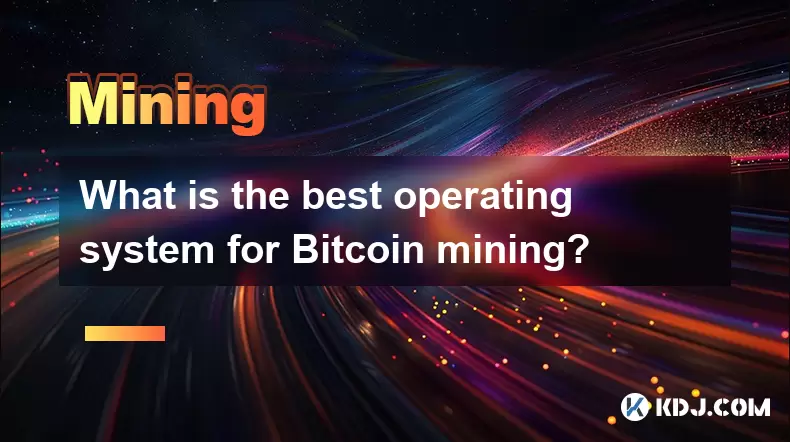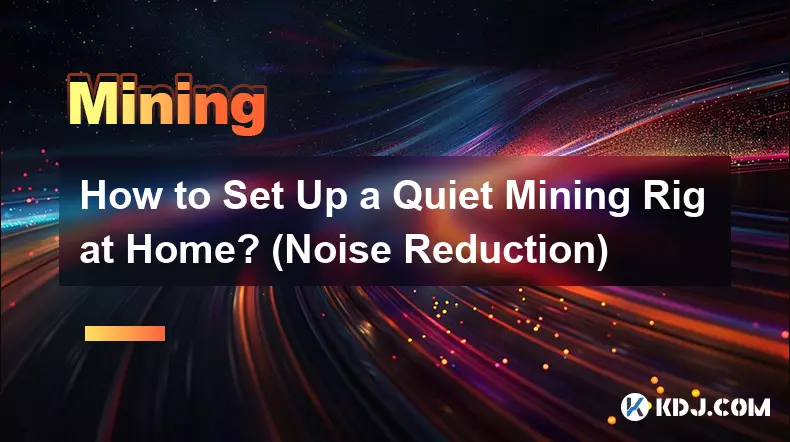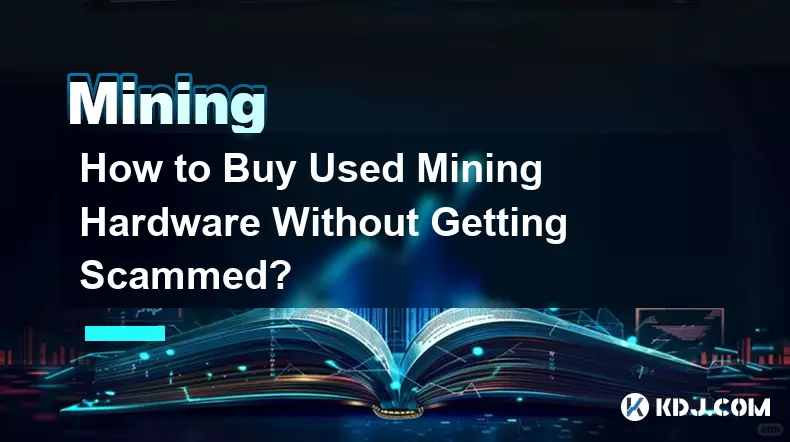-
 bitcoin
bitcoin $87959.907984 USD
1.34% -
 ethereum
ethereum $2920.497338 USD
3.04% -
 tether
tether $0.999775 USD
0.00% -
 xrp
xrp $2.237324 USD
8.12% -
 bnb
bnb $860.243768 USD
0.90% -
 solana
solana $138.089498 USD
5.43% -
 usd-coin
usd-coin $0.999807 USD
0.01% -
 tron
tron $0.272801 USD
-1.53% -
 dogecoin
dogecoin $0.150904 USD
2.96% -
 cardano
cardano $0.421635 USD
1.97% -
 hyperliquid
hyperliquid $32.152445 USD
2.23% -
 bitcoin-cash
bitcoin-cash $533.301069 USD
-1.94% -
 chainlink
chainlink $12.953417 USD
2.68% -
 unus-sed-leo
unus-sed-leo $9.535951 USD
0.73% -
 zcash
zcash $521.483386 USD
-2.87%
What is the best operating system for Bitcoin mining?
Linux is often the preferred OS for Bitcoin mining due to its low resource overhead, customization options, and strong command-line support, making it ideal for optimizing mining performance.
Jul 20, 2025 at 03:07 pm

Understanding the Role of an Operating System in Bitcoin Mining
Bitcoin mining involves solving complex cryptographic puzzles using computational power, and the operating system (OS) plays a crucial role in managing hardware resources efficiently. The OS is responsible for handling communication between the mining software, drivers, and the underlying hardware such as GPUs or ASICs. Choosing the right operating system can significantly impact mining efficiency, stability, and overall profitability.
The ideal OS should offer low resource overhead, strong community support, compatibility with mining software, and ease of configuration. While many miners prefer lightweight systems to maximize performance, others may prioritize user-friendly interfaces or advanced monitoring tools.
Why Linux Is Often the Preferred Choice
Linux, particularly distributions like Ubuntu Server, is widely regarded as the go-to operating system for serious Bitcoin miners. This preference stems from several factors:
- Low system overhead: Linux distributions are typically lightweight, consuming minimal CPU and RAM, which leaves more resources available for mining tasks.
- Open-source and free: There are no licensing costs associated with Linux, making it cost-effective for large-scale mining farms.
- Strong command-line interface (CLI) support: Many mining operations are script-driven, and Linux offers robust CLI capabilities.
- Customization and flexibility: Miners can tweak kernel settings, optimize drivers, and even create custom builds tailored to their specific hardware configurations.
Some miners use specialized Linux-based mining OSes such as EthOS or SimpleMining OS, which are optimized specifically for GPU mining and come pre-configured with mining tools and monitoring dashboards.
Windows: A User-Friendly Option for Beginners
For those new to Bitcoin mining, Windows 10 or Windows 11 might be more approachable due to its widespread use and graphical user interface (GUI). It supports a wide array of mining software out of the box and has better driver support for some graphics cards.
However, Windows comes with trade-offs:
- Higher resource consumption: Windows runs background processes that consume memory and CPU cycles, potentially reducing mining efficiency.
- Licensing costs: For large-scale operations, acquiring multiple licenses can become expensive.
- Security vulnerabilities: Windows is more prone to malware attacks compared to Linux, especially if not properly secured.
Despite these drawbacks, many individual miners still opt for Windows due to its ease of setup and familiarity.
Using macOS for Bitcoin Mining: Feasibility and Limitations
While macOS is a Unix-based system and technically capable of running mining software, it is not commonly used for Bitcoin mining. Apple’s ecosystem focuses more on productivity and creative applications rather than raw computing power.
Key limitations include:
- Limited hardware options: Most Mac devices come with integrated GPUs that are not powerful enough for profitable mining.
- Driver and software compatibility issues: Many mining tools are not natively supported on macOS, requiring workarounds or third-party solutions.
- Thermal throttling: MacBooks and iMacs are designed for quiet operation and often throttle performance under heavy load, which hurts mining efficiency.
Although macOS can be used for educational purposes or small-scale testing, it's generally not recommended for serious mining endeavors.
Considerations When Choosing Your Mining OS
Several factors should influence your choice of operating system for Bitcoin mining:
- Hardware compatibility: Ensure your chosen OS supports your mining rig’s components, especially GPUs and motherboard chipsets.
- Ease of maintenance: Some systems require more frequent updates or troubleshooting than others.
- Remote management capabilities: If you're managing a mining farm remotely, look for an OS that supports SSH, remote desktop, or web-based dashboards.
- Energy efficiency: An efficient OS can reduce idle power consumption, which directly affects profitability.
- Community and documentation: Having access to active forums, guides, and troubleshooting help can make a big difference, especially for beginners.
Miners should also consider whether they need a headless setup (without a monitor) or a GUI-based environment depending on their technical expertise and operational needs.
Frequently Asked Questions
Q: Can I switch my mining OS after setting up my rig?Yes, switching your mining OS is possible but requires backing up your configurations, reinstalling the OS, and reconfiguring your mining software. Make sure to document your current settings before proceeding.
Q: Do mining-specific OSes like EthOS cost money?Some mining OSes offer both free and paid versions. For example, EthOS provides a subscription model with added features like automatic driver updates and cloud monitoring.
Q: Is it safe to mine Bitcoin on a shared computer?Mining can put significant stress on hardware, leading to overheating and reduced lifespan. It’s advisable to use a dedicated machine for mining to avoid impacting other tasks or risking hardware failure.
Q: Are there any security concerns when choosing a mining OS?Yes, especially with Windows. Always keep your OS updated, use strong passwords, disable unnecessary services, and consider using a firewall or intrusion detection system to protect your mining rig from potential threats.
Disclaimer:info@kdj.com
The information provided is not trading advice. kdj.com does not assume any responsibility for any investments made based on the information provided in this article. Cryptocurrencies are highly volatile and it is highly recommended that you invest with caution after thorough research!
If you believe that the content used on this website infringes your copyright, please contact us immediately (info@kdj.com) and we will delete it promptly.
- Bitcoin Faces Identity Crisis as Speculators Flock to Prediction Markets and Ultra-Short Options
- 2026-02-02 00:30:06
- MGK and Jelly Roll Honor Ozzy Osbourne at Pre-Grammy Gala, Sparking Fan Frenzy
- 2026-02-02 00:50:02
- Super Bowl Coin Flip: Unpacking the Prediction Power of Heads or Tails
- 2026-02-02 01:30:01
- Litecoin Price Cracks 9-Year Floor Amidst Market Breakdown: What's Next for the OG Crypto?
- 2026-02-02 01:20:02
- Crypto News, Cryptocurrency Markets, Latest Updates: A Topsy-Turvy Start to 2026
- 2026-02-02 01:15:01
- New York Minute: LivLive Presale Ignites, While Solana Navigates Choppy Waters
- 2026-02-02 01:15:01
Related knowledge

How to Earn Passive Income with DePIN Mining? (New Trend 2026)
Feb 01,2026 at 12:40pm
Understanding DePIN Mining Mechanics1. DePIN mining relies on real-world infrastructure participation rather than computational hashing. Users deploy ...

How to Mine Vertcoin (VTC) on Your Gaming Desktop? (One-Click Miner)
Feb 02,2026 at 03:39am
Understanding Vertcoin's Mining Algorithm1. Vertcoin uses the Verthash algorithm, which is intentionally memory-hard and designed to resist ASIC domin...

How to Set Up a Quiet Mining Rig at Home? (Noise Reduction)
Feb 01,2026 at 11:00pm
Acoustic Enclosure Design1. Use rigid, dense materials such as MDF or acoustic-grade plywood for the enclosure walls to block mid-to-high frequency no...

How to Choose a Mining Pool with Lowest Fees? (Fee Comparison)
Feb 02,2026 at 02:39am
Understanding Mining Pool Fee Structures1. Pool operators charge fees to cover infrastructure, maintenance, and administrative costs. These fees manif...

How to Mine Bitcoin on Mac (M1/M2/M3)? (Software Tutorial)
Feb 01,2026 at 07:19pm
Understanding Bitcoin Mining on Apple Silicon1. Bitcoin mining relies on solving cryptographic puzzles using computational power, and Apple’s M1, M2, ...

How to Buy Used Mining Hardware Without Getting Scammed?
Feb 01,2026 at 08:00pm
Research the Seller's Reputation Thoroughly1. Check archived listings and feedback on platforms like Bitcointalk forums, Mining Hardware subreddits, a...

How to Earn Passive Income with DePIN Mining? (New Trend 2026)
Feb 01,2026 at 12:40pm
Understanding DePIN Mining Mechanics1. DePIN mining relies on real-world infrastructure participation rather than computational hashing. Users deploy ...

How to Mine Vertcoin (VTC) on Your Gaming Desktop? (One-Click Miner)
Feb 02,2026 at 03:39am
Understanding Vertcoin's Mining Algorithm1. Vertcoin uses the Verthash algorithm, which is intentionally memory-hard and designed to resist ASIC domin...

How to Set Up a Quiet Mining Rig at Home? (Noise Reduction)
Feb 01,2026 at 11:00pm
Acoustic Enclosure Design1. Use rigid, dense materials such as MDF or acoustic-grade plywood for the enclosure walls to block mid-to-high frequency no...

How to Choose a Mining Pool with Lowest Fees? (Fee Comparison)
Feb 02,2026 at 02:39am
Understanding Mining Pool Fee Structures1. Pool operators charge fees to cover infrastructure, maintenance, and administrative costs. These fees manif...

How to Mine Bitcoin on Mac (M1/M2/M3)? (Software Tutorial)
Feb 01,2026 at 07:19pm
Understanding Bitcoin Mining on Apple Silicon1. Bitcoin mining relies on solving cryptographic puzzles using computational power, and Apple’s M1, M2, ...

How to Buy Used Mining Hardware Without Getting Scammed?
Feb 01,2026 at 08:00pm
Research the Seller's Reputation Thoroughly1. Check archived listings and feedback on platforms like Bitcointalk forums, Mining Hardware subreddits, a...
See all articles










































































